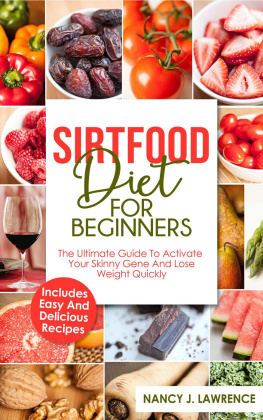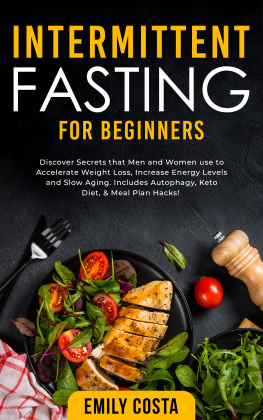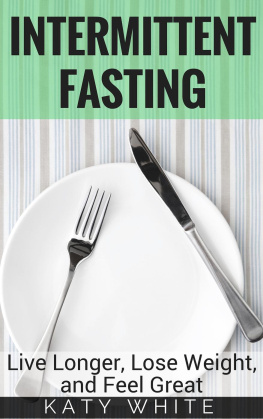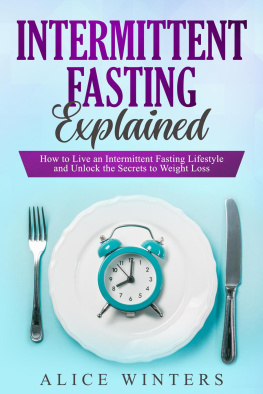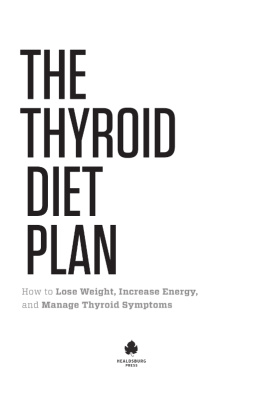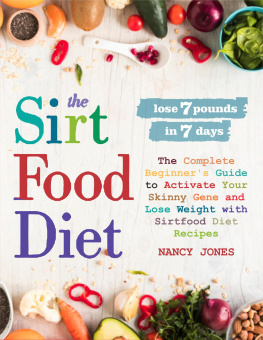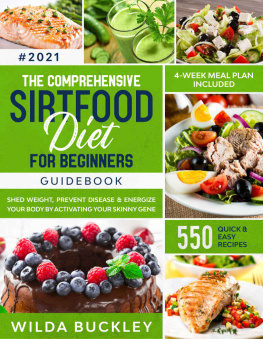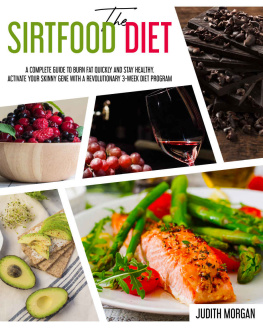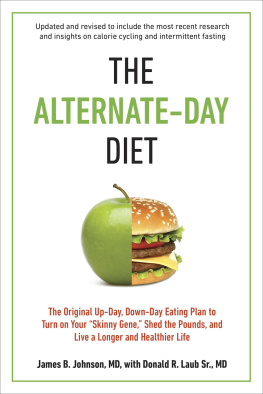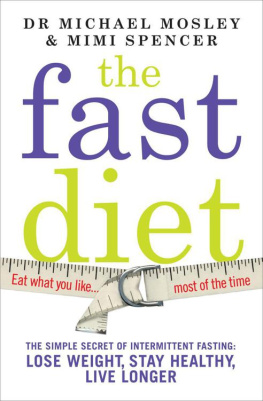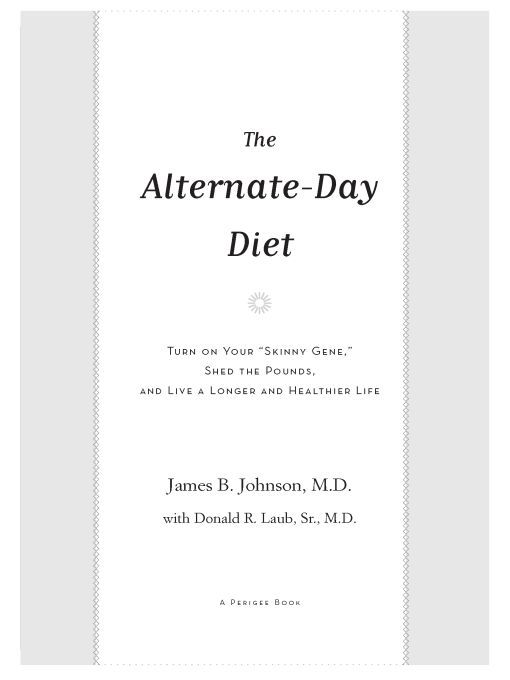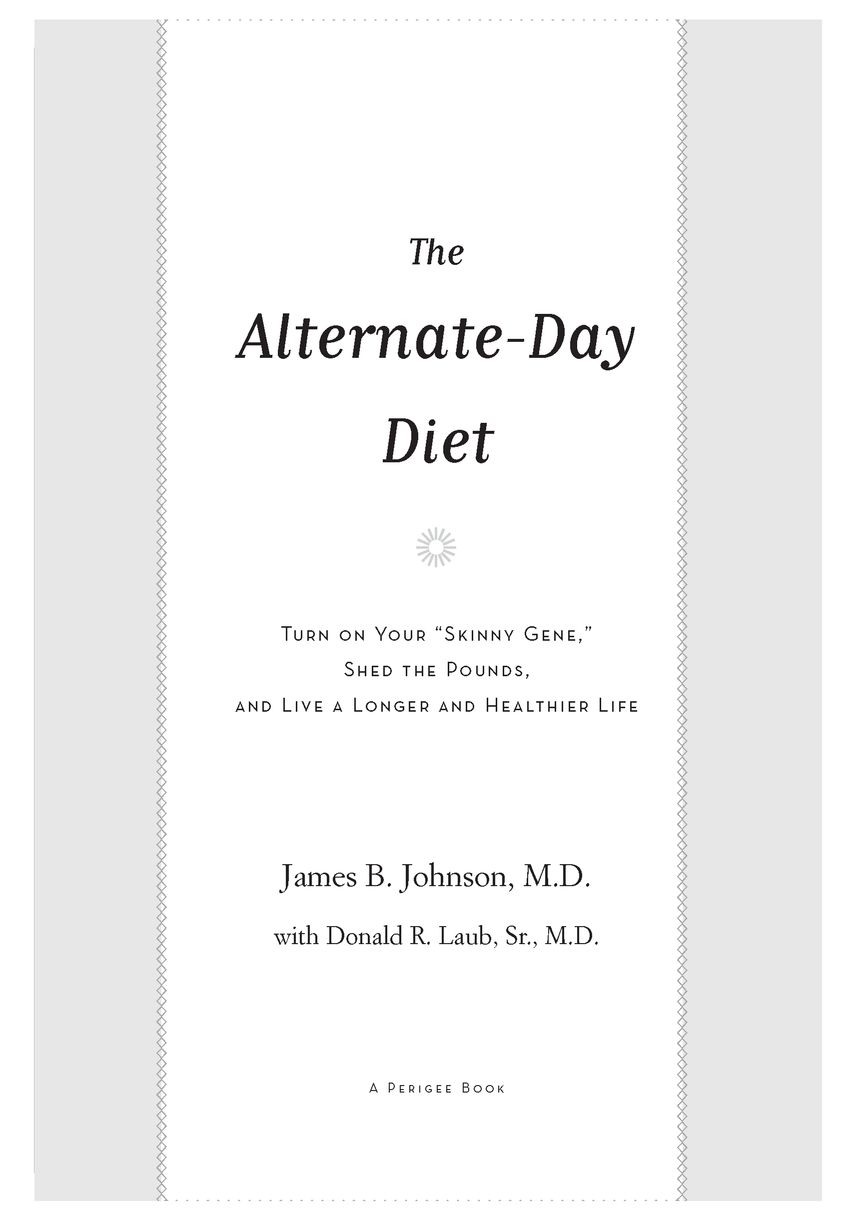Table of Contents
Diet only half the time... but get twice the results!
A variation [on periodic fasting] that also may lead to weight loss is restricting calories on alternate days. In a small study published in March, researchers followed a group of ten people with a body mass index above 30 who were fed just 20 percent of their normal calorie intake on alternate days. On the other days they could eat what they wanted. After eight weeks, theyd lost an average of 8 percent of their body weight. These people were also asthma patients, and their symptoms also improved significantly after two weeks on the regimen.
US News & World Report
Discover the breakthrough technique that allows you to activate your skinny gene and enjoy these remarkable and measurable benefits:
Lose fat easily and quickly without deprivation, discomfort, or stress.
Improve fat metabolism.
Avoid regaining lost fat.
Slow the aging process.
Optimize nutrition.
Reduce by as much as 90 percent the primary cause of inflammatory disease.
To Dana and Judy, for suffering along with us
Why This Diet?
I have struggled most of my life to maintain a healthy weight. As a plastic surgeon performing liposuction, I have coun seled thousands of patients about their weight. Until a few years ago, however, my advice appeared to be inadequate, because very few of my patients lost weight and kept it off. Then, in 2003, I had a weight-loss epiphany. I read about an experiment done on some fat mice at the National Institutes of Health that changed my life.
If youre having trouble controlling your own weight, you may be at least somewhat relieved to know that there is significant scientific research showing that fewer than 10 percent of Americans can eat freely, without restraint, and not gain weight. Sixty-five percent of us either dont restrain or try unsuccessfully, and are, therefore, overweight or obese. That leaves approximately 25 percent of the population who, presumably, restrain successfully and avoid gaining weight.
Since youre reading this, I assume you belong to that 65 percent who fall prey to the fatal attraction of food. If so, you should know that I am just like you. I love to eat food that tastes good and I used to be hungryor at least thought I was hungryvirtually all the time.
Thats really not so surprising if you consider that when our hunter-gatherer ancestors roamed the earth they truly never knew where their next meal was coming from, and so, whenever there was food available, they ate it. Those who hunted or gathered and ate the most survived, and gradually, over time, that eat-whatever-you-can-whenever-you-can survival instinct was programmed into our DNA. It became part of our genetic code. Now, of course, theres no shortage of food. Good, tasty, inexpensive food is available to all of us in abundance all the time. And our DNA is telling us to eat it.
Going on a diet is, therefore, going against everything our genes are telling us we need to do to survive. In her book Rethinking Thin, Gina Kolata, a science writer for the New York Times, looks at the plethora of evidence indicating that some people are more genetically predisposed than others to be overweight and concludes that those who are genetically destined to be fat may be incapable of losing a significant amount of weight and keeping it off. But she also writes that the genes that make people fat need an environment in which food is cheap and plentiful, and that is exactly the environment in which we live today. Moreover, if genetics were solely responsible for the epidemic of overweight people in America, it would mean that 65 percent of the population had been born with some kind of rogue fat gene, and there doesnt appear to be any evidence thats true.
When I was a child, my parents had a cabin in northern Michigan where we went for weekends. On the drive home one Sunday we stopped at a place called McDonalds. The hamburgers were tiny, but the french fries and shakes were (and still are) the best Id ever had. From that day on, stopping at McDonalds became the highlight of my entire weekend. In those days, however, McDonalds locations were few and far between; today it seems theres one on almost every corneralong with Wendys, Burger King, Dunkin Donuts, Cinnabon, and thousands of other inexpensive, really tasty, fattening fast-food outlets. Given the combination of our hardwired disposition to eat and a landscape literally littered with tasty food, its no wonder that, according to a study published in the Journal of the American Medical Association, the obesity rate for adults doubled between 1980 and 2002.
Despite these obstacles, however, the majority of us continue to try to lose weight because we dont like the way we look or feel. We want to fit into attractive clothes, we want to have more energy, and we want to live longer. And whatever nature or nurture, biology or environment tells us about our chances for success, we seem to keep on trying. A 2007 article in the Health section of the Washington Post reported that one in three American adults are trying to lose weight at any given time.
Like you, Ive been on any number of diets, all of which worked so long as I stuck with them. But inevitably, at some point, diet fatigue set in and the predisposition to eat everything that came my way won out. I fell off the wagon, so to speak, and gained back whatever weight Id lost. Im sure youve been there too.
Where I may be different from you, however, is that, as a medical doctor, I have access to and am familiar with much of the scientific research showing how and why nutrition affects longevity and health. In fact, as you will see, Ive conducted some of that research myself.
For years I was familiar with the work being done primarily by Roy Walford and his colleagues at UCLA, which showed that severely restricting our caloric intake would substantially prolong our life and health. Even knowing that, however, I was conscious enough of my own limitations to understand that I couldnt or wouldnt subject myself to such radical food deprivation for any length of time.
The breakthrough for me came when I read about a study done by Mark Mattson and his colleagues at the National Institute on Aging. What these researchers discovered was that mice who were fed only on alternate days and who were allowed to eat as much as they wanted on the days they were fed, experienced as great or greater health benefits as a control group of mice who were fed a restricted diet on a daily basis.
I knew I wouldnt be able to fast on alternate days, but I thought I might be able to restrict my calorie intake enough every other day to reap the same health benefits as those mice. I decided to become my own guinea pig (or lab mouse) and began to restrict my calories to 20 percent of what I normally ate on alternate days. On nonrestrictive days I ate whatever and as much as I wanted.
A couple of weeks into my self-designed program I realized that I was losing weight. I lost 35 pounds in the first 11 weeks and have kept that weight off since 2003. I did not feel deprived or frustrated, as I had on other diets Id tried, and many of the hundreds of patients I have put on this plan since that time have experienced similar results.
As you read on, youll learn how and why the Alternate-Day Diet works. Youll hear about how you can activate a magic gene called SIRT1 that not only prevents and repairs the damage done to our cells by free radicals but also inhibits our ability to store fat. Once you understand the scientific evidence supporting the efficacy of alternate-day calorie restriction, I believe, youll have all the trust and motivation you need to begin losing weight and improving your own health and longevityfor the rest of your life.


